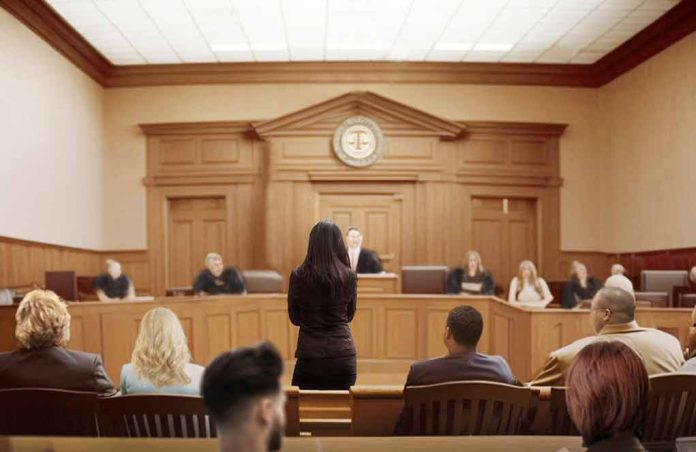
(UnitedHeadlines.com) – On May 16, a judge discovered a clerical error had been made on one of Chad Daybell‘s murder indictments, causing tensions to rise in the Idaho courtroom as the mistake led to the judge reconsidering one of the first-degree murder charges.
Daybell is charged with first-degree murder for the 2019 deaths of his wife, Lori Vallow Daybell’s children, Tylee Ryan, 16, and Joshua “JJ” Vallow, and his ex-wife, Tammy Daybell. His current wife, Lori Vallow Daybell, was also involved and she was found guilty on May 12 for the three deaths and sentenced to five life sentences without the possibility of parole.
Prosecutors had just rested their case, which they had detailed to jurors over the last three weeks, when 7th District Judge Steven Boyce noted there was a clerical error on the indictment for JJ Vallow’s death, incorrectly listing his suspected date of death as sometime between Sept. 8 and Sept. 9, 2019, the suspected date of death for his sister, Tylee Ryan. While the original indictment in 2021 correctly listed JJ Vallow’s suspected date of death as between Sept. 22 and Sept. 23, 2019, the dates were mistakenly changed when the indictment was amended in February. Under Idaho law, the indictment cannot be amended once the state rests its case.
Boyce’s discovery caused tensions to rise while prosecutors and defense attorneys argued over whether the error meant Daybell should be acquitted of that charge. Daybell’s defense attorney, John Prior, asked the “court to dismiss this charge” against his client because of the error, noting the prosecution “lost their chance” to correct the indictment.
The prosecution argued that the judge had three options. He could either overrule the state law to correct the indictment, accept the mistake and provide instructions to the jury about the error, or reject modifying the indictment and reopen the case.
JJ Vallow’s grandfather, Larry Woodcock, awaited the judge’s ruling, saying he was “very disappointed.”
Despite the tension in the room as they waited, Boyce ultimately ruled in favor of the prosecution, calling the error an “inadvertent mistake,” noting that he would give jurors special instructions, allowing the charges to be considered.
Copyright 2024, UnitedHeadlines.com














